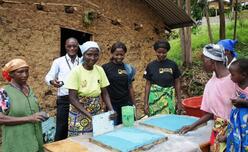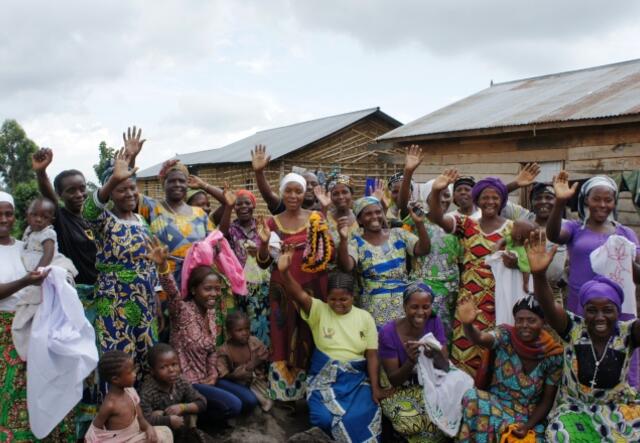They say every job has its downsides. For aid workers, the frustration we feel when we realise our work is not enough is probably the main one: we don’t reach all affected communities and those who we reach do not always receive all they need.

The downside of working in advocacy is that we rarely see the positive impact our work has on the ground. We don’t deliver the services; we don’t speak to our beneficiaries frequently. Instead, we focus on bringing change at different levels to help solve the problems that our programmes cannot solve, on addressing the root causes of these problems. We seek long term change and that takes time.
But there are days or experiences that shine some light on why advocacy efforts at all levels are an important step to achieve long-term change for the most vulnerable. In a context as complex as the one of the Democratic Republic of the Congo (DRC), I just met the members of two grassroots women’s organisations, Dusenge in the village of Ntamugenga and Ikuzo, in the village of Mutabo, both in Rutshuru territory, North Kivu.
Women in these organisations advocate to leaders of their communities to improve their conditions and promote women’s rights. They chose to advocate on the right of women to inheritance, using this topic as a doorway to talk about other issues, such as domestic violence and girls’ access to school. I listened to their vibrant and warm singing, which was only a prelude to their testimonies of success.
Dusenge Committee Members spoke about the Village’s Chief support to women’s rights after their advocacy activities started. Men of the community are beginning to understand women have the same rights as men, and Committee Members are now invited to community meetings to give their opinions. “Women in Ntamugenga have a voice, and this voice is now being heard by our leaders”, said Dusenge’s President, Maman Kwitegetse.

In Mutabo they are seeing similar progress. Four men in their community have given land to their daughters, and when the boys complained why they had to share with their sisters, their fathers said: “Haven’t you been paying attention to the sessions? Girls and boys have the same rights”. Two women from Ikuzo’s Committee have received land from their fathers too.
They all spoke of the other types of violence they face that their advocacy hasn’t changed. Armed groups still attack women when they collect fire wood and or while they farm the fields, and men of their communities are abusing girls. Some topics are harder to speak about.
But they remain strong. With an initial fund that the IRC provided, they produce soap, bake bread, make handbags and knit to sell their products once a week. Their profits fund their advocacy activities and Ikuzo members saved enough to buy the land in which their Centre is. The Centres also have a listening centre, where women who need support or have survived violence can find a safe space. Above all, it is a space where they meet, talk about their priorities and share sadness and joy. It is probably the only activity they have that is for them only.
The decreasing funding for non-emergency and gender-based violence programmes in the DRC threatens initiatives like this one. As I speak to these courageous women I think, how will they change the status quo if we only respond to basic needs in extreme crises? Are we going to leave them just after we planted that seed, and expect the fruits to come in such a rocky land?
The women in North Kivu know that their problems are far from over. They told us that if they stop their advocacy, things will go back to the way they were. Real change takes time to achieve, they said, but the men in their communities see them now as guardians for women’s rights. We cannot leave them now.